Benzene is a planar molecule and has 6 (4n + 2) electrons. Inspite of three double bonds, it is extra ordinarily stable and does not undergo addition reactions as expected. It undergoes electrophilic substitution reactions in which one or more hydrogen atoms of the ring are replaced by other atoms or groups :

Complete the reaction :

Topper's Solved these Questions
- HYDROCARBONSBOOK - MODERN PUBLICATIONCHAPTER - HYDROCARBONSEXERCISE - Revision Exercises (True or False Questions)
10 Videos
- HYDROCARBONSBOOK - MODERN PUBLICATIONCHAPTER - HYDROCARBONSEXERCISE - Revision Exercises (Fill in the blanks Questions)
10 Videos
- HYDROCARBONSBOOK - MODERN PUBLICATIONCHAPTER - HYDROCARBONSEXERCISE - NCERT FILE (NCERT EXEMPLAR PROBLEMS) (Long Answer Questions)
3 Videos
- HALOALKANES AND HALOARENESBOOK - MODERN PUBLICATIONCHAPTER - HALOALKANES AND HALOARENESEXERCISE - UNIT PRACTICE TEST
12 Videos
- HYDROGENBOOK - MODERN PUBLICATIONCHAPTER - HYDROGENEXERCISE - UNIT PRACTICE TEST (for Board Examination)
9 Videos
Similar Questions
(A) p−O2N−C6H4COCH3 is prepared by Friedel Crafts
acylation of nitrobenzene.
(R) Nitrobenzene easily undergoes electrophilic substitution
reaction.
View SolutionGive reasons for the following:
(i) tert-buty lbenzene does not give benzonic acid on treatment with acidic KMnO4.
(ii)Normally, benzene gives electrophilic substitution reaction rather than electrophilic addition reaction although it has double bond.
View Solution
Knowledge Check
(A) p−O2N−C6H4COCH3 is prepared by Friedel Crafts acylation of nitrobenzene.
(R) Nitrobenzene easily undergoes electrophilic substitution reaction.ABoth A and R are ture and R is the correct explanation of A.BBoth A and R are ture but R is not a correct explanation of ACA is true but R is falseDBoth A and R are false.Assertion: Benzene does not give electrophilic substition reactions.
Reason: Benzene ring has extraordinarily stability because of delocalisation of six π-electrons of three double bonds.AAssertion and reason both are correct statements and reason is correct explanation for assertion.BAssertion and reagon both are correct statements but reason is not correct explanation for assertion.CAssertion is correct statement, but reason is wrong statement.DAssertion is wrong statement but reason is correct statement.Vladimir Markovnikov rule:
Alkenes undergo electrophilic addition reactions. It is triggered by the acid acting as a electrophile toward π-electrons of the double bond.
Markovnikov's rule states that when an unsymmetrically substituted alkene reacts with a hydrogen halide, the hydrogen atom adds to the carbon that has the greater number of hydrogen, e.g.,
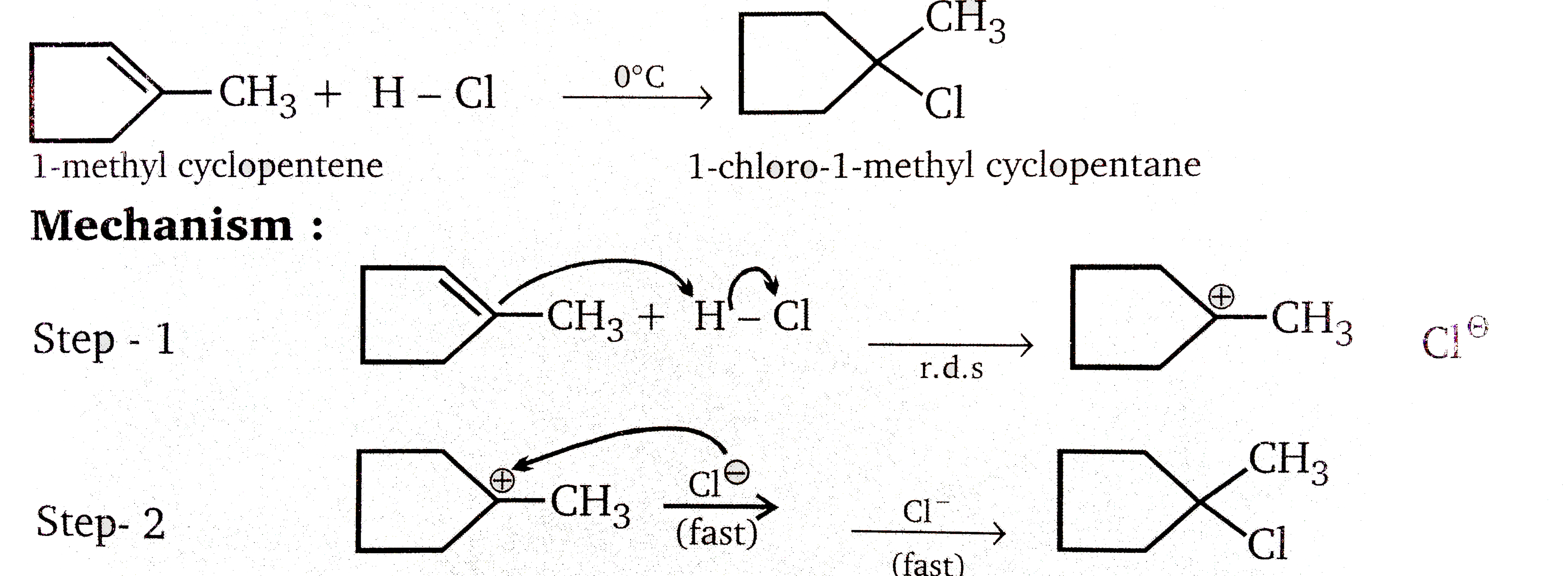
Identify the major products r1,r2 and r3 in the given reactions
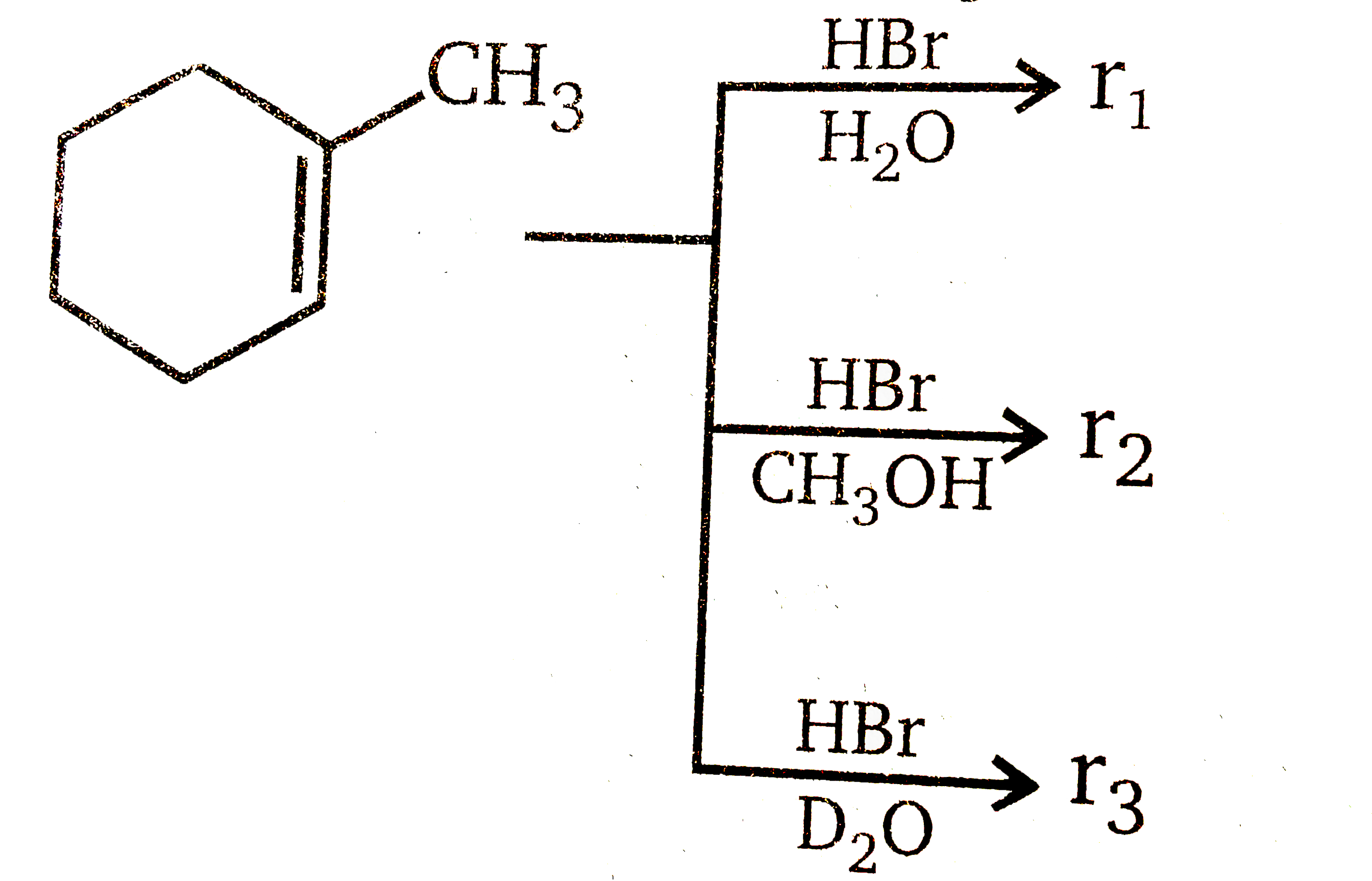 A
A B
B C
C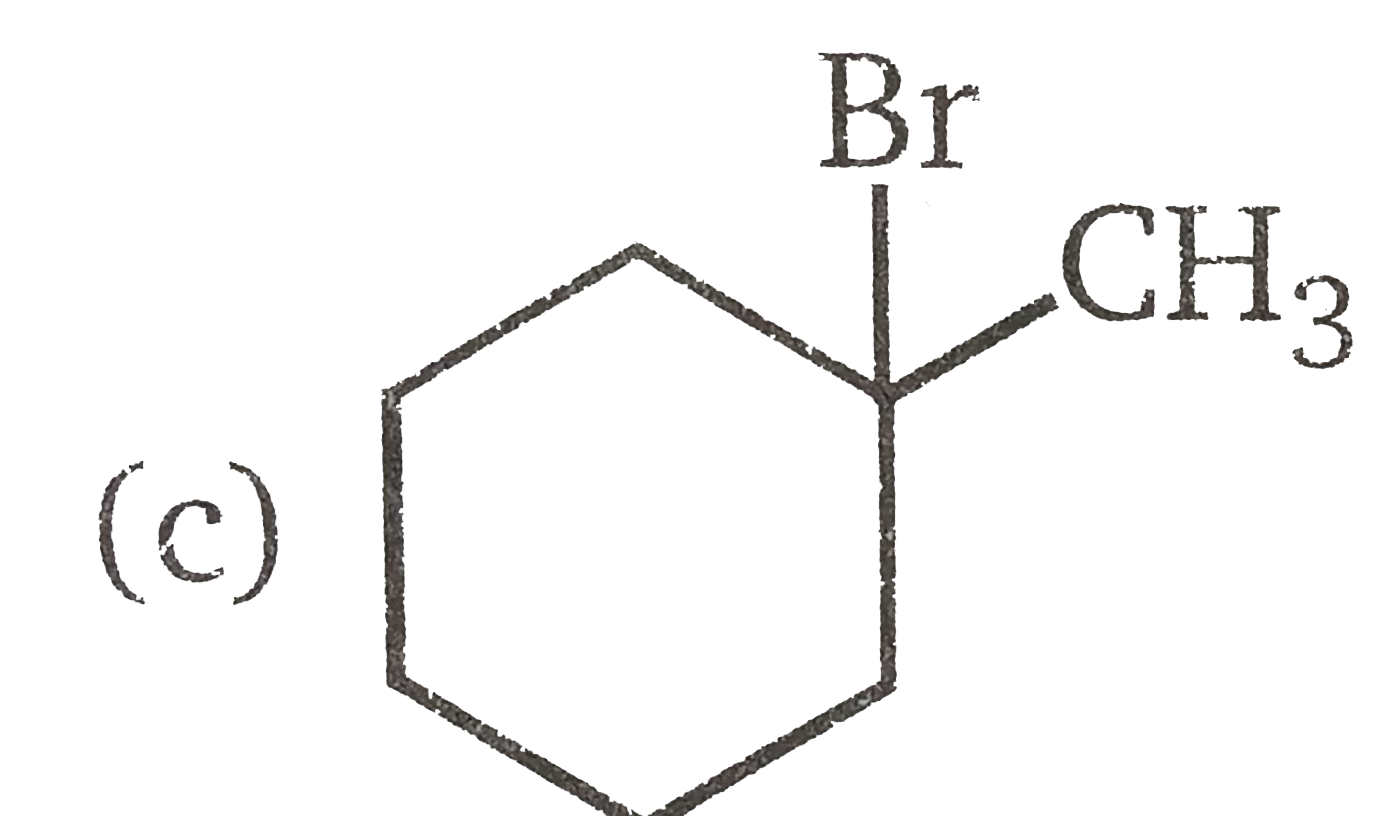 D
D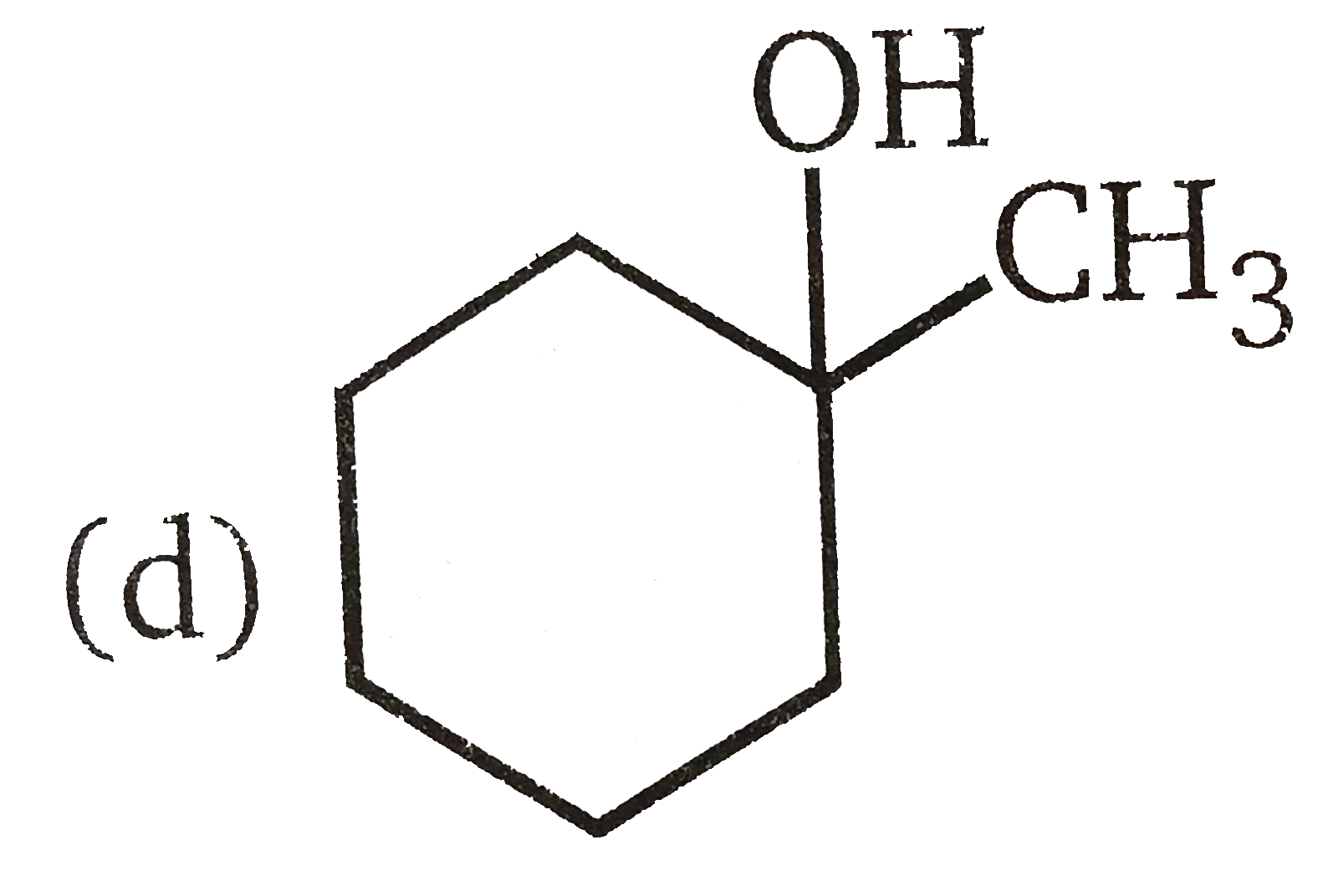
Give reasons for the following:
(i) tert-buty lbenzene does not give benzonic acid on treatment with acidic KMnO4.
(ii)Normally, benzene gives electrophilic substitution reaction rather than electrophilic addition reaction although it has double bond.
View SolutionVladimir Markovnikov rule:
Alkenes undergo electrophilic addition reactions. It is triggered by the acid acting as a electrophile toward π-electrons of the double bond.
Markovnikov's rule states that when an unsymmetrically substituted alkene reacts with a hydrogen halide, the hydrogen atom adds to the carbon that has the greater number of hydrogen, e.g.,
 In which of the following reaction, diastereomers will be formed?
In which of the following reaction, diastereomers will be formed?
View SolutionVladimir Markovnikov rule:
Alkenes undergo electrophilic addition reactions. It is triggered by the acid acting as a electrophile toward π-electrons of the double bond.
Markovnikov's rule states that when an unsymmetrically substituted alkene reacts with a hydrogen halide, the hydrogen atom adds to the carbon that has the greater number of hydrogen, e.g.,
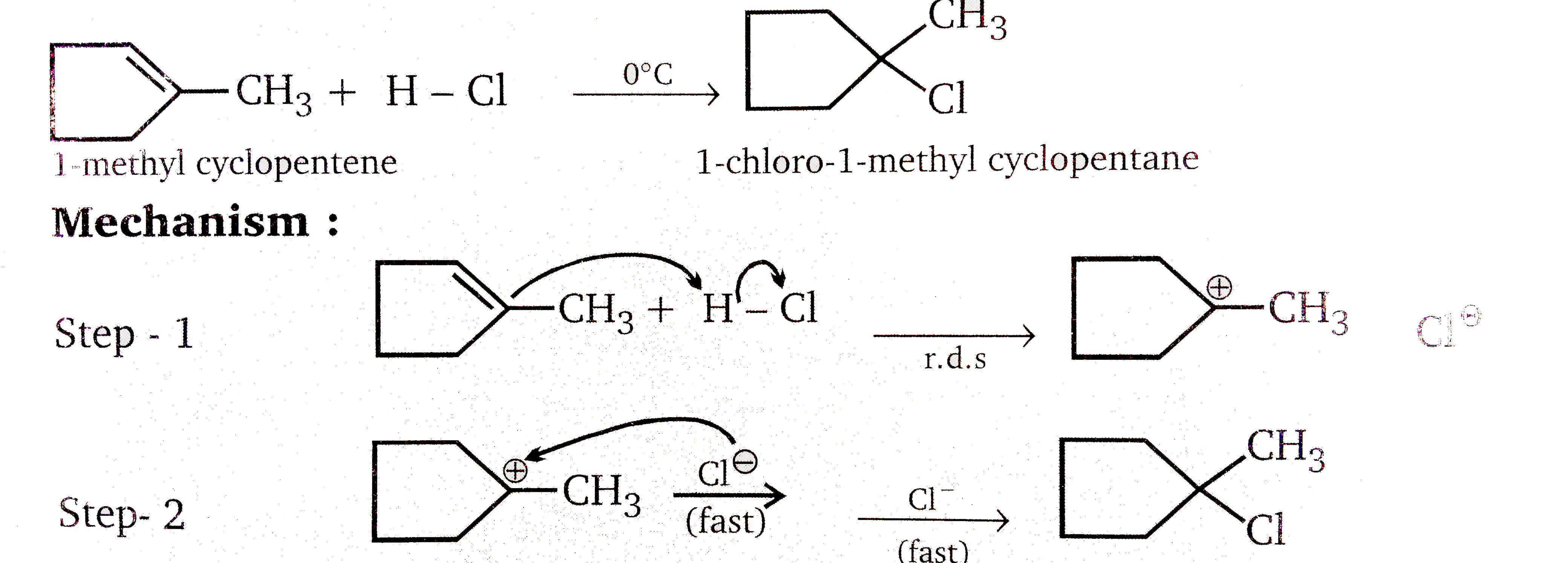 In which of the following reactions, product is racemic mixture?
In which of the following reactions, product is racemic mixture?
View SolutionVladimir Markovnikov rule:
Alkenes undergo electrophilic addition reactions. It is triggered by the acid acting as a electrophile toward π-electrons of the double bond.
Markovnikov's rule states that when an unsymmetrically substituted alkene reacts with a hydrogen halide, the hydrogen atom adds to the carbon that has the greater number of hydrogen, e.g.,
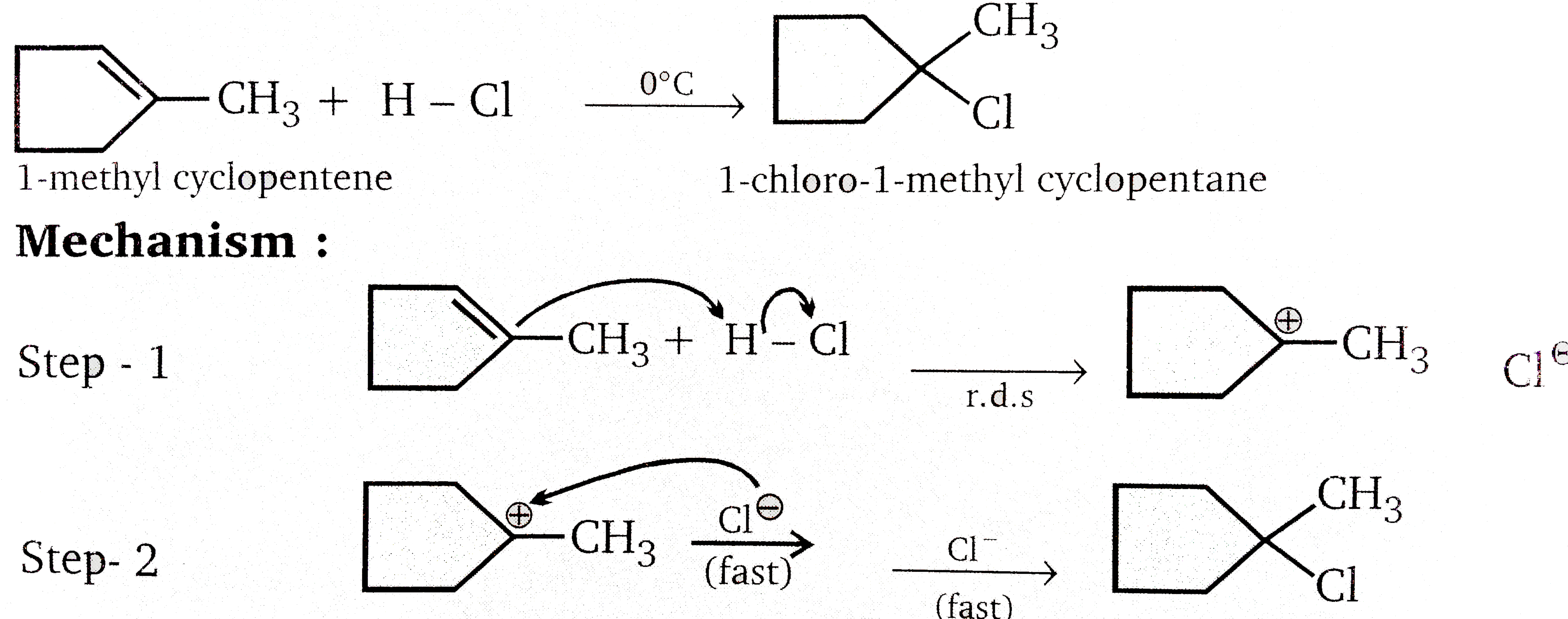
What is the energy profile for the given reaction?
View Solution(A) Toluene undergoes nitration much more readily than benzene.
( R) It is due to electron relesing nature of −CH3 group which increases electron relectron density on benzene and electrophilic substitution reaction like nitrotion becomes faster.
View Solution

